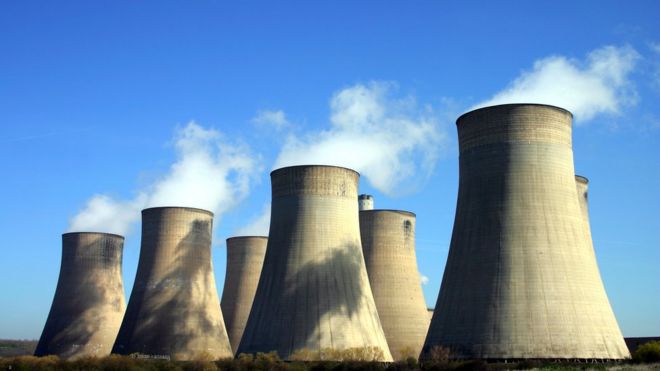 Britain has broken its record for the longest continuous period without generating electricity from coal.
Britain has broken its record for the longest continuous period without generating electricity from coal.National Grid said that the coal-free period lasted more than 90 hours before coming to an end on Monday afternoon.
It is the longest period since the industrial revolution and breaks the previous record set in April 2018 of 76 hours and 10 minutes.
The government plans to phase out Britain’s last coal power plants by 2025 to cut greenhouse gases.
Duncan Burt, director of operations at National Grid, told BBC Radio 5 Live it was “a really big deal”.
“It’s all about the sunny weather we’ve been seeing, so energy demand is low. There has been lots of lovely solar power off the panels too.”
 Image copyrightPA
Image copyrightPAIn April, 2017 Britain went its first full day without coal since the 19th century.
Coal made up less than 10% of the country’s energy mix last year and will be less than that again in 2019, according to National Grid.
However, experts warned that power generated by coal was largely being replaced by gas, another fossil fuel, rather than renewable sources.
They also said a reliance on gas made the UK vulnerable to the whims of international markets, and was not clean enough to meet the UK’s legal targets to cut greenhouse gas emissions.
The 2008 Climate Change Act requires greenhouse gas emissions to be reduced by 80% compared with 1990 levels by 2050.
Muna Suleiman, climate campaigner at Friends of the Earth, said: “89 hours of coal-free electricity is great but let’s make this all day every day.
“Electricity generated by renewable sources is a key part of the fight against climate chaos so it’s time to remove all the blockers to renewable energy.
“The government must prioritise the development of sources such as solar and onshore wind.”

